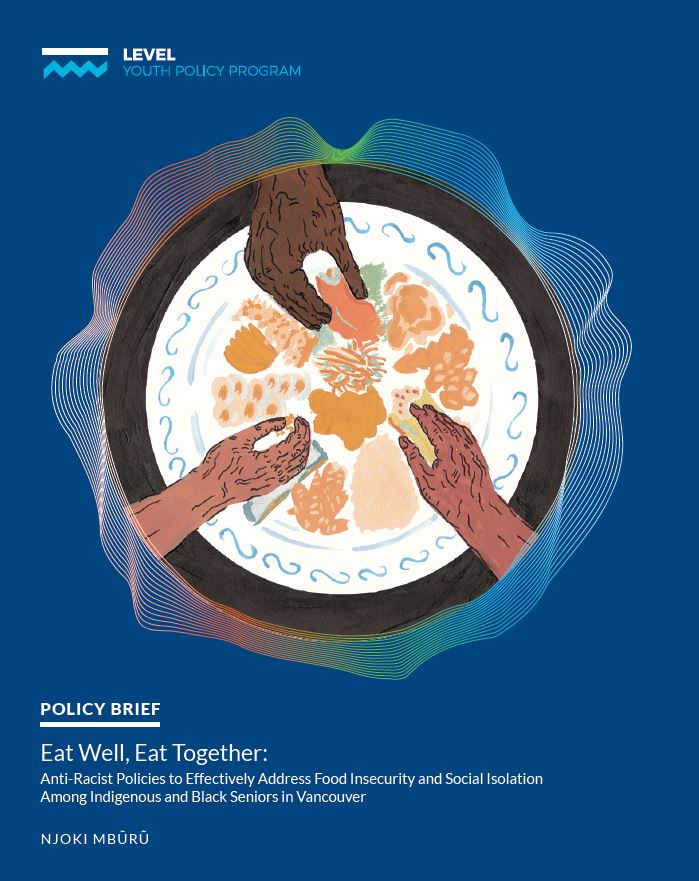In Vancouver, British Columbia between 2017-2018, 28.9% of Black households and 28.2% of Indigenous households reported that they struggled with accessing adequate, nutritious, and affordable food.
These statistics were particularly striking compared to the statistic that 11.1% of White households faced food insecurity. Like the reality on the national scale, food insecurity is prevalent amongst Black and Indigenous seniors. This disproportionate impact is primarily attributed to income levels inequality. Research studies show that the level of food insecurity (i.e. marginal, moderate, or severe) is negatively related to one’s income. This correlation is strong within Canadian society, despite its being praised as having one of the lowest rates of food insecurity among seniors within the list of countries in the Organisation for Economic Co-operation and Development (OECD).
Since 1990, Canada has been collecting data on household food insecurity. Throughout, researchers have consistently concluded that socio-demographic factors such as race and immigration status are essential in determining the level of food insecurity that individuals are exposed to. Unfortunately, policies that address food insecurity at a municipal-to-national level appear ignorant of this reality, choosing instead to purely focus on income levels. By advancing a reductive policy that only focuses on income, governments are perpetuating a cycle of poverty that is inherently sabotaging Black and Indigenous folk’s ability to secure high-paying, safe, and secure jobs. When Black and Indigenous people become eligible for pensions, and other government-funded support programs, they are already at a lower benchmark, given the factors that have impeded their economic progress. These structural factors include higher rates of homelessness, incarceration, drug-related illnesses, and trauma that leads to mental and physiological challenges.
Therefore, this policy proposal is based on an understanding and appreciation for a holistic, longitudinal, context-specific, race-based analysis of the causes of food insecurity, specifically for the senior (65+) population in Vancouver, BC. Currently, the Federal government supports senior citizens through the Old Age Pension Plan program, which includes a universal, income-based, and earnings-contribution plan. While these plans have generally been particularly useful in reducing the level of food insecurity amongst seniors, they have failed to take into account the unequal “starting points” determined by race, ability, immigration status, gender identities, etc. Quantitative baselines are easy when used to determine how much a senior is eligible for in their pension. However, a qualitative baseline that acknowledges the structures of oppression and racism would have more impact in eradicating inequalities related to income, access to food or housing, etc.
The COVID-19 pandemic has posed the greatest threat to seniors’ health and wellbeing around the world. To minimize exposure to infection, restrictions to movement have become a standard feature. One particular consequence of this restriction is social isolation. For seniors in Vancouver who were dependent on subsidized meals from community kitchens or collecting fresh produce in community gardens, social isolation has exacerbated the level of food insecurity that they grapple with. Before the declaration of a state of emergency due to COVID-19, community organizations that run seniors’ programs, e.g. luncheons, struggled to access consistent funding to keep their services ongoing. Programs were sometimes shortlived and may have failed to reach a share of seniors in most need. To close this gap and ease insecurity in running senior-focused programs, I propose that the Provincial and Federal government allocate a portion of their annual budgets to supporting community-led programs that support racialized seniors. Municipal governments would play the role of managing and disbursing these funds since they (municipal governments) are perceptively more informed about the community-led programs that are in place.
To effectively reach Black and Indigenous seniors affected by food insecurity and social isolation, collecting accurate data is the first step. With the information that I have encountered during my research, seniors are presented as a monolithic group, assumed to be similar in status. This is misrepresentation and reductiveness, reflective of a political and economic system built on ignorance, erasure, anti-Indigeneity, and anti-Black racism. Collecting data that takes critical socio-demographic factors into account makes room for intersectional policy. Rather than creating policy that is catering to the symptoms of the problem, we would be moving towards policy that is thorough in its root-cause analysis. The role of the government, I propose, is to not only supervise the regular collection and reporting of disaggregated data but also to prepare and follow through with action plans that incorporate race-based and context-specific solutions to the challenges of food insecurity and social isolation. For the City of Vancouver, this would mean investing in health-equity programs whose mission, vision, and theory of change are grounded in reconciliation, upholding Indigenous sovereignty, and responding to the call that Black Lives Matter.


